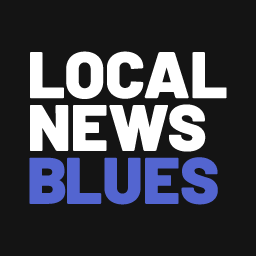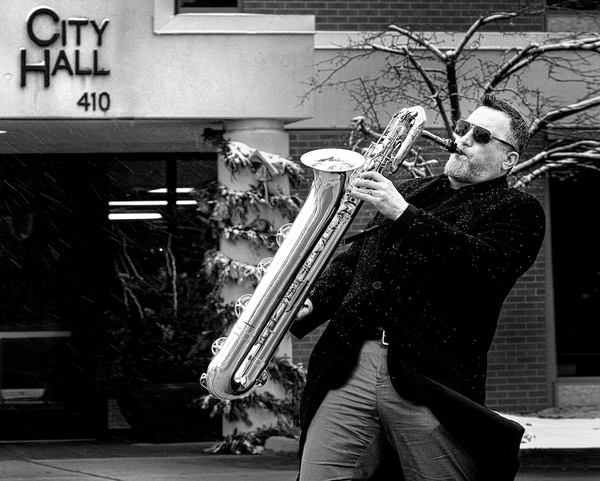Can we talk about the leftist politics of INN and its funders?
The Balkanization of journalism funding will only have ill effects.

By Alice Dreger
Who cares whether majority white, majority Republican areas have real local news coverage?
That’s the question implicitly raised by Howard Husock in a recent column for City Journal. In case you’re not familiar with it, City Journal is published by the Manhattan Institute, a conservative think tank that seeks “to keep America and its great cities prosperous, safe, and free.”
Husock, a senior fellow at the conservative American Enterprise Institute, begins his remarks on local news by rehashing the same concerns everyone seems to cover: Citing Medill’s problematic map, he notes that local news outlets have been shrinking and closing in alarming numbers. He suggests this is bad if we care about local accountability and an informed citizenry. He notes that the nonprofit route offers a promising model.
But there, Husock veers in a different direction, asking, “Is the rise of nonprofit local news a trojan horse?”
He goes on to explain what he’s talking about – namely that the help and funding coming from the Institute for Nonprofit News (INN) and the major national foundations funding journalism (MacArthur, Knight, Ford) “comes with progressive strings attached.”
Husock is particularly alarmed by the pressures exerted in terms of diversity, equity, and inclusion (DEI). While he gives a few examples from easily accessible material, if you’ve been a member of INN for any length of time, you are already familiar with the consistent – one might say constant – messaging from INN about attending to diversity, equity, and inclusion.
To some extent this occurs with regard to LGBTQ status and socioeconomic class, but INN’s concerns are especially strong with regard to race and ethnicity. The ethos is evident in newsletters, projects, the INN Index, and the INN Board’s decision to push “recommended candidates” in board elections. (We’ll put aside for a moment how strange it is for the board of a “member organization” to put their thumbs on the scales of member rep elections.)
While Press Forward started with a claim about being “independent of ideology,” that campaign has been sending a similar message, naming as one of its four areas of concentration “improving diversity of experience and thought along with the availability of accurate and responsive news and information in historically underserved communities and economically challenged news deserts.”
It’s worth noting that the way this concern is stated might yet mean funding news in poorer white areas. But so far, Press Forward has been leaning chiefly to funding BIPOC newsrooms, following pressure to do so from various news associations, including the Online News Association. (They’ve also been funding middlemen, an issue many of us have griped about already.)
Recognizing how problematic it is for editorial decisions to be made on the basis of funders’ wishes – journalism is not supposed to be for sale – INN requires all its members to maintain editorial independence policies. These must state that we can’t be bought in terms of our coverage.
But the reality is that, given the fragility of our operations, nonprofit news publishers are forced to be highly sensitive to what it is funders (or funders’ middlemen like INN) are looking for in our organizations, not only in terms of our staffing and audience, but also our content.
Unfortunately, in his analysis, Husock doesn’t suggest that conservative philanthropists could join with progressives to fund nonpartisan local news through effective blind trusts: give nonpartisan local news outlets much needed money while keeping their politics to themselves. He also doesn’t engage the issue of how conservatives have frequently chosen to attack journalism rather than help.
He does suggest that “A better approach to saving local journalism is available, with local civil society and business leaders teaming up with regional, not national, foundations.”
He then provides a profile of Cardinal News, a highly successful operation that has been bringing nonpartisan news of and to southern and western Virginia since September 2021.
Cardinal News is doing an extraordinary job providing smart, straightforward coverage to an area that would otherwise be largely missed. Their launch was made possible thanks to major funding from local big businesses that recognized the importance of journalism to a functional society.
But their success is not guaranteed, and being able to tap into national dollars would help ensure Cardinal News’ longevity.
I asked Luanne Rife, Executive Director and Chief Development Officer, what she thought of Husock’s column, and she indicated he had correctly articulated a major challenge her operation faces in terms of national funding. Its primary demographics are not those the left tends to worry about.
“We do cover a very large geographic region that is predominantly white, predominantly Republican, and is home to the least educated and poorest populations in Virginia,” Rife said by email. “It is an easy population to write off, as – until Cardinal News – the political and economic leadership of Virginia mostly had.
“And that’s a mistake. We would argue that serving this population with independently reported stories they can trust helps to better inform them about complex issues and is the best tonic to correcting misinformation and, let’s face it, lies that fester unchecked. We meet everyone as a neighbor in whom we'd like to find commonalities on which to build upon civil discourse.”
Rife proudly calls Cardinal News “fiercely nonpartisan,” and – as INN et al. frequently note – nonpartisan news has the potential to engage people across the political aisle, improving civic discourse and democratic functionality.
“An example is found in Howard’s story,” Rife said, “in which he shows our education reporter Lisa Rowan striving to remain nonpartisan when writing about efforts to ban books, rainbows and unicorns by a local school board. Because of her approach, a public official in a neighboring county aborted a similar effort, telling us he learned a different point of view from Lisa’s storytelling.”
With regard to Husock’s suggestion that local journalism is better off with local funding rather than national, Rife wrote, “This shouldn’t be an either-or. Thanks to Blue Engine’s guidance, we have a strong strategic plan that shows us how to get to where we want to build Cardinal News with two different paths to follow. One path is a local model relying on continued growth in local philanthropy, businesses’ support and reader revenue to fund our expansion. The other is one in which we would be fortunate to attract the investment of venture philanthropy. With national funding – that we know would expire after a fixed time period -- we could invest faster, grow our impact on our community faster, and thus speed the growth of long-term, local support.
“We know we're going to serve even more people by delivering unbiased news to them through products and platforms from which they seek to consume news. The questions are ‘How fast are we going to get there?’ and ‘Who is going to help us make it happen?’”
If what we’re looking at is a Balkanization of funding – wherein conservatives fund journalism in red areas and progressives fund journalism in blue areas – not only are we going to be further pressuring news outlets to follow their funders’ politics, we will also be digging local and national political trenches even deeper.
If big philanthropy wants to get serious about saving quality journalism, it needs to share in our struggle to be “fiercely nonpartisan.” That doesn’t have to mean giving up on the idea of supporting news in places that have been historically passed by. It doesn’t have to mean giving up on attending to what we would reasonably recognize as inequalities and inequities.
But it does mean serious, transparent discussions of funding priorities and of funding decisions, and much less partisan messaging from funders and their middlemen to the people actually bringing the news.
Alice Dreger is a journalist, historian, and the publisher of Local News Blues. She founded East Lansing Info, a nonprofit digital investigative news service, and ran the operation for about ten years. Read more at the Local News Blues contributors page.





